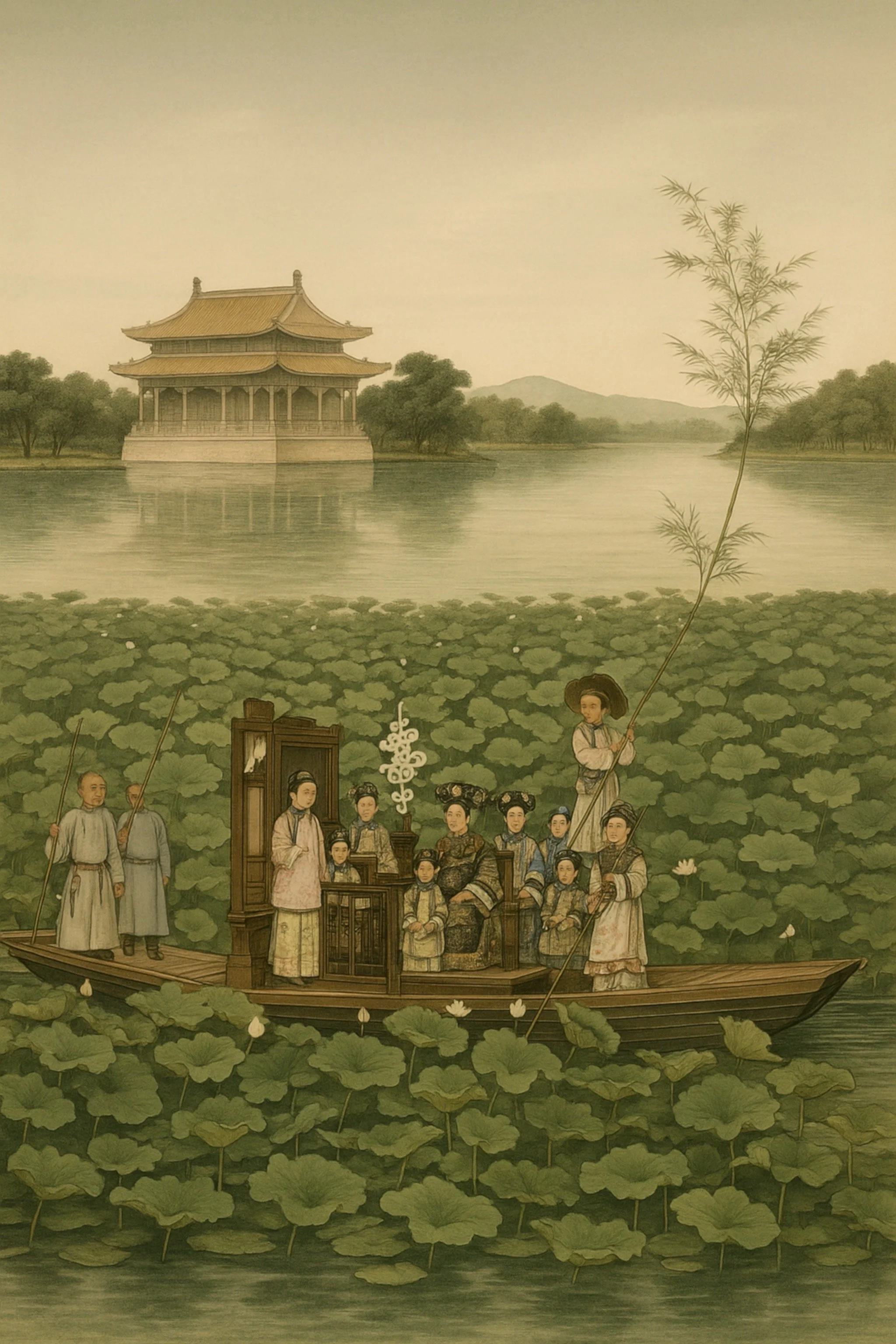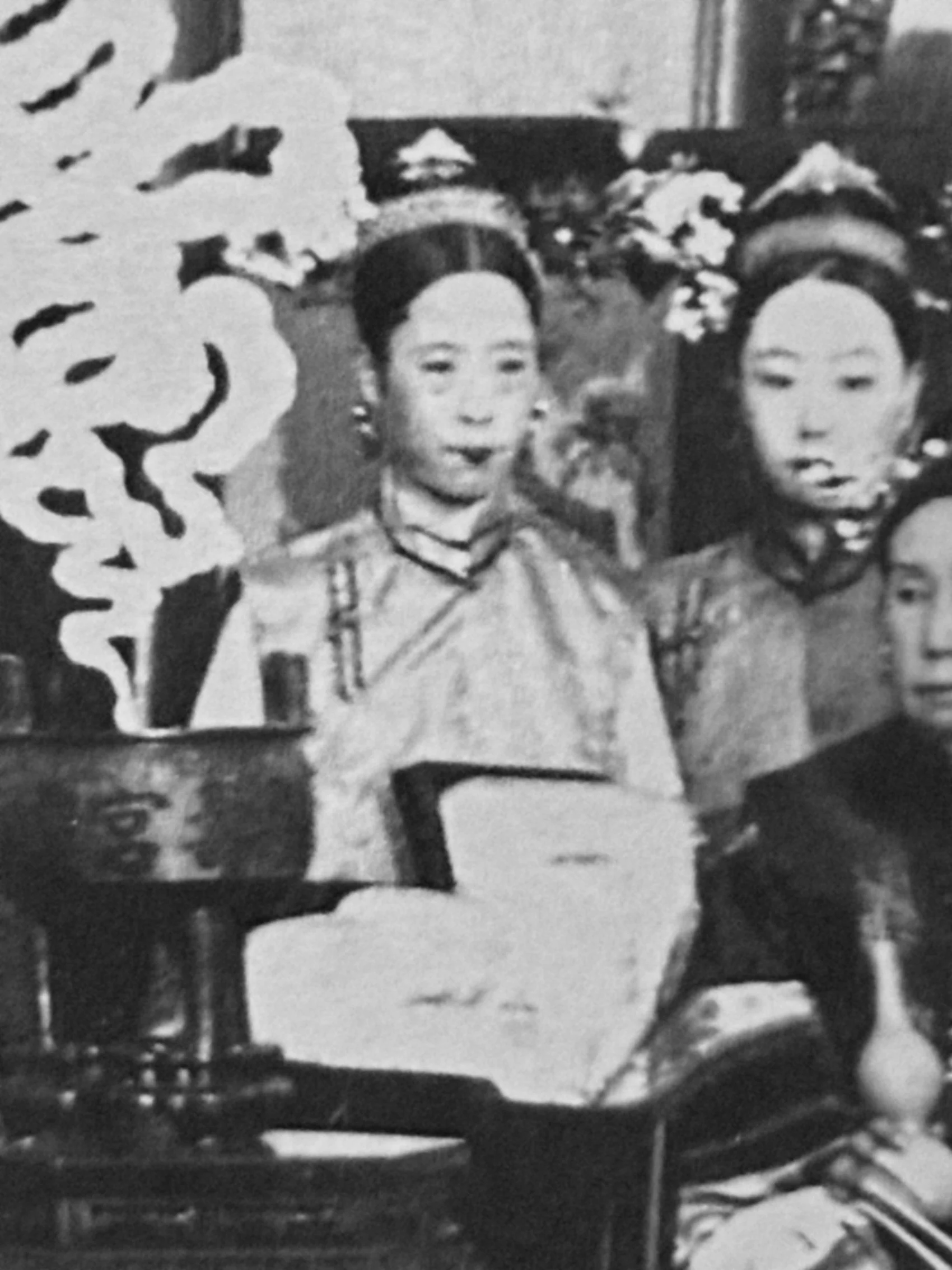The Lotus Barge
大內慈儀雖尊極九重而心懷自然樂觀蓮池之靜景 每夏日將臨則命內廷設舟於中海荷塘 舟中設榻設几一瓷瓶三蓮花扈從十數 侍女執扇而立侍從操篙以行 畫舫既穩輕聲細唱若與風和 聖母時開笑顏輕倚繡几 置身萬蓮之中心無一塵 是時風拂荷香水映殿影 天地萬象俱為一靜 此非世俗之奢華 實乃天人合一之真趣也
自昔以來世人每多頌光緒二十四年之變法謂之壯志未酬志士空悲尊德宗為睿哲之主貶孝欽后為守舊之姦 若黑白分明不容置喙 然而歷史之真不在人情之偏蓋多有曲折盤根未可一語而蔽之 實則德宗在位之朝已漸具君主立憲之形而未冠其名 皇帝之權不復自主政事之決咸由孝欽后垂簾 孝欽后操政如內閣之制朝章國政非帝一人可斷皆繫於幕後之議決 皇上徒為虛名實權盡歸慈闈 由是觀之光緒年間所倡之變法非若其表面所示之革新創制實乃奪權之爭假維新之辭而行奪柄之實 當時康梁倡言新政 所謂變法不過藉皇帝之威以奪孝欽后之權 其志不純其言不直 乃政變披革新之外衣耳 孝欽后久經世故洞悉其機所抗拒者非改革之理實識其陰謀之用心彼之所圖非權之均衡乃權之易手 若康梁二人能共圖時政和議中朝或可徐圖漸進 惜乎彼等欲挾少主而蔽慈闈破舊制而建私權終致逆鱗之怒速遭撲滅 變法之士其死雖哀然亦命中注定 彼等高估己勢輕視權衡罔顧實勢激變生災 回首往事孝欽后所誅者非改革之本意而政變之僭圖 所剪者非新政之根而亂政之萌芽也 彼時若不清理恐天下早崩非僅遲亡 由是觀之改革誠為利器非為權奪之舟車 真改革者當堂皇正大尊制循法共謀大計 若乃假改革之名行奪權之實 終為披新裝之爭權者耳 非可久矣
——————
Though the matriarch of the realm dwelled at the pinnacle of imperial dignity, her heart was ever drawn to the quiet harmony of nature. With the coming of summer, she would often command a modest barge be prepared upon the lotus lake. Accompanied by but a small retinue, her attendants stood fanning at her side, while eunuchs guided the vessel gently through the water. At moments, Her Imperial Majesty would smile faintly, leaning against the embroidered rest, surrounded on all sides by blooming lotus leaves, her spirit untroubled. A breeze stirred the fragrance of the pond; the waters mirrored the pavilion afar. The world, for a time, was still. This was no display of worldly luxury, but the true delight of one in harmony with Heaven and Earth.
It has long been fashionable to laud the Hundred Days’ Reform of 1898 as a heroic but doomed attempt at modernizing the Ch’ing Empire, with Emperor Kuang-hsu as the enlightened reformer and Empress Dowager Tzu-hsi cast as the villainous reactionary. But history, when viewed without sentiment, often tells a far more complicated story.
In truth, the Ch’ing court under the Kuang-hsu Emperor had already, in effect, become a form of constitutional monarchy, just without the name. The Emperor himself was reduced to a symbolic figurehead, while real authority was exercised by the Empress Dowager, who functioned much like a de facto cabinet. Decisions of state were not made by the sovereign alone, but were subject to the consensus, or command, of the political machinery behind the throne.
Seen in this light, the calls for constitutional reform during the Kuang-hsu era were not as novel or revolutionary as they appeared. Rather, they were attempts to reclaim power from an already entrenched regency, cloaked in the language of modernization. What some called “reform”was, in fact, a struggle for control. Empress Dowager Tzu-hsi, wise to the nature of this struggle, resisted not the idea of reform itself, but the motives behind it. She saw clearly that power was not being redistributed — it was being contested.
The movement led by K’ang Yu-wei and Liang Ch’i-ch’ao was not purely a reform agenda. It was, in essence, a political coup wrapped in the language of progress. While advocating for constitutional monarchy and Western-style governance, their true aim was to shift real power away from the Empress Dowager and into the hands of a faction centred around the young emperor and themselves.
Yet Empress Dowager Tzu-hsi, far from being a simple despot, was an astute and seasoned ruler who had guided the empire through tumultuous decades. She understood the need for reform. Indeed, she later initiated constitutional experiments herself, but she opposed the idea of hasty change that served more as a power grab than a national revival.
Had K’ang and Liang sought to work with the Empress Dowager rather than bypass her authority, the reforms might have had a chance. Instead, their method of “ruling through the Emperor while sidelining the Empress Dowager” amounted to a direct challenge to the established order, one that was bound to provoke swift and decisive retaliation.
The fate of the so-called “Six Gentlemen” of reform was tragic but, in many ways, inevitable. They overestimated their influence, underestimated the existing power structure, and ignored the political reality of the time.
In hindsight, the Empress Dowager did not kill the reforms. She killed a rebellion disguised as reform, and in doing so, she preserved the empire a little longer, albeit at the cost of its ability to adapt quickly.
Reforms, no matter how well-intentioned, must not become the Trojan horse for political takeovers. True reform must be transparent, collaborative, and respectful of institutional wisdom. Otherwise, it risks becoming nothing more than a power struggle in reformist clothing.
Seated on the Barge
Tzu-hsi, the Empress Dowager
Standing on the Barge
Lung-yu, the Empress Consort



